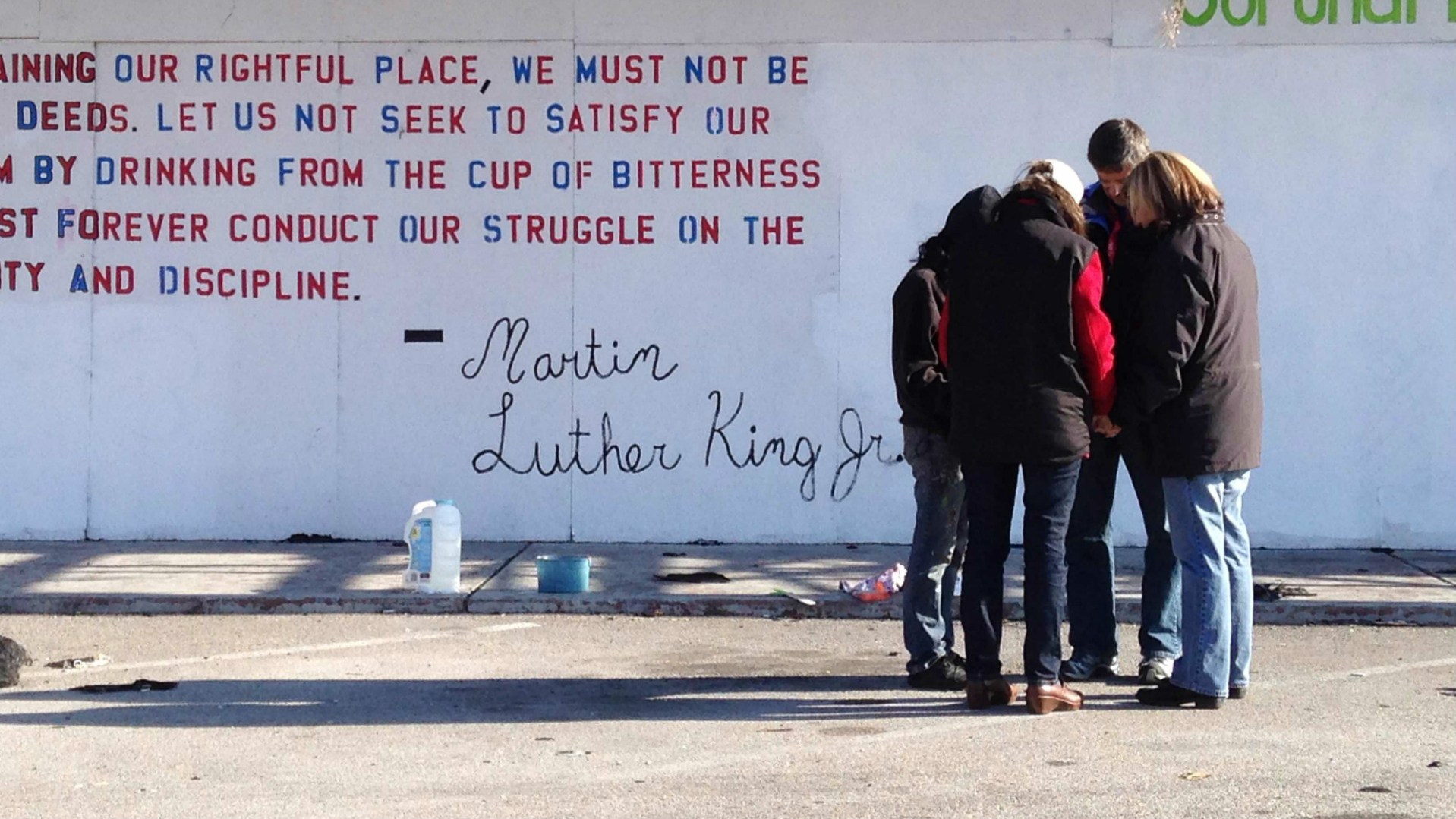Franklin Graham had some blunt advice on Facebook for those worried about police shootings that have claimed the lives of unarmed black men in places like Ferguson, Missouri.
Obey the police, or else.
“Listen up—Blacks, Whites, Latinos, and everybody else,” Graham wrote on March 12. “Most police shootings can be avoided. It comes down to respect for authority and obedience. If a police officer tells you to stop, you stop. If a police officer tells you to put your hands in the air, you put your hands in the air.”
Graham, who is president of both the Billy Graham Evangelistic Association (BGEA) and Samaritan’s Purse, cited Hebrew 13:17 to make his point. The Bible, he said, tells people to submit to those in authority and that includes the police.
“It’s as simple as that,” he wrote. “Even if you think the police officer is wrong—YOU OBEY.”
Nearly 200,000 signaled their support of Graham by liking his post, which was shared more than 83,000 times.
But it’s not that simple, counters Efrem Smith, president of World Impact, an urban missions organization founded after the 1965 Watts riots in Los Angeles. “It’s important to respect the police,” he told CT. “But that’s not the whole story.”
Obeying the police doesn’t heal the long history of distrust and broken relationships between police and minority groups, especially in urban neighborhoods, Smith said. Christians also need to be engaged in Jesus’s ministry of reconciliation.
Smith is among 31 signers of an open letter to Graham, written by a group of African American, Hispanic, and Asian American leaders, many of them evangelicals. The letter has become Sojourners most-viewed post ever, tweeted assistant editor Betsy Shirley.
“As a leader in the church, you are called to be an ambassador of reconciliation,” the letter reads. “The fact that you identify a widely acknowledged social injustice as ‘simple’ reveals your lack of empathy and understanding of the depth of sin that some in the body have suffered under the weight of our broken justice system.”
Dominique Gilliard, executive pastor of New Hope Covenant Church in Oakland and a board member for the Christian Community Development Association, drafted the letter out of concern that Graham’s post sounded more like the words of politician, rather than the wise counsel of a pastor.
Gilliard feared that Graham’s status as a Christian leader would lead people to think that “obey the police” is the mainstream evangelical response. “It was an evangelical response, not the evangelical response," he said.
About 4,500 people have endorsed the letter so far.
Graham is traveling and unavailable for comment, according to Atlanta-based DeMoss Group, which handles his public relations.
Among other signers of the open letter are Christena Cleveland, associate professor of reconciliation studies at Bethel University; Kathy Khang of Intervarsity Christian Fellowship; Orlando Crespo, board member of the National Latino Evangelical Coalition; and Léonce B. Crump Jr., lead pastor of Renovation Church in Atlanta.
The BGEA has made headlines for its work during the protests in Ferguson. The group sent 81 chaplains to work in the community last fall. Another team of chaplains were invited back to the community, after the recent shooting of two police officers.
“It is not possible to solve a community’s deep-rooted problems with a team of chaplains deployed for six weeks, and we knew that before we started,” wrote Graham last month in explaining the BGEA's "mission of compassion and reconciliation" in Ferguson. He noted:
When a race-infused conflict makes the news, many people find it all too easy to choose which side to blame and then, like an armchair quarterback, do nothing more. But doing nothing is not a biblical response. Racism is a sin that divides people. The Bible says that “God … has reconciled us to Himself through Jesus Christ, and has given us the ministry of reconciliation” (2 Corinthians 5:18, NKJV). The Bible commands Christians to take action: “Pursue the things which make for peace” (Romans 14:19).
CT's previous reporting on Ferguson includes the Christian effort to rebuild it, why Christians should care despite the facts, whether the gospel mandates racial reconciliation, and how black and white Christians think differently about race.









